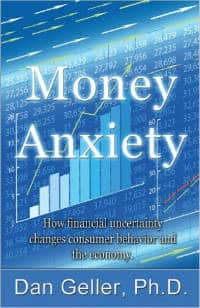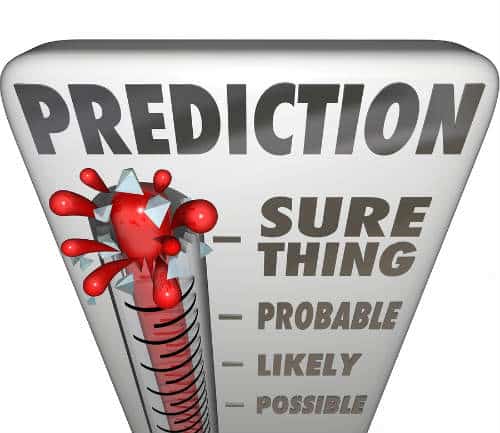We all know that the economy goes through cycles, such as boom and bust periods.
But a new study on financial behavior shows that people also repeat their financial behavior in highly predictable ways — largely based on the state of the economy.
The study was conducted by Dr. Dan Geller, a behavioral finance scientist and the author of Money Anxiety, who studied people’s financial behaviors in every economic cycle over the past 50 years.
In summary, Geller concluded that people largely duplicate 6 specific financial-behavior patterns – 3 related to spending and 3 related to savings.
Furthermore, each financial behavior pattern corresponds to the stage in the economic cycle, such as recession, recovery, expansion and decline.
Here are the 6 financial behavior habits, in Geller’s own words:
Castle Craze
As soon as the economy improves and starts to expand, people return to their favorite “sport” – bigger and better homes.
The “Castle Craze” financial behavior is about people’s fascination with the status symbol associated with success. The craze is not just for practical consideration of having a place to live and for investment reasons, but also as a statement of status and achievement.
In good economic times, people will over extend their finances just to win in the bigger, better and nicer national competition.
Durable Diet
People go on a “Durable Diet” when the economy is in a recession and they want to save money by prolong the life of their most expensive possessions – automobiles and appliances.
Typically, people will hold off on replacing such durable items until the economy improves, or until the item breaks down and must be replaced.
The reason car sales have increased dramatically in the last couple of years is exactly because during the recession many people postponed replacing their cars as they would normally do.
Tiny Treats
People turn to “Tiny Treats” when they can’t treat themselves with what they really want – expensive items.
When the economy is transitioning, people are unsure if they should buy a new big screen TV or put the money aside in case things don’t get better economically.
“Tiny Treats” are a little compensation for giving up on the big things they are not buying.
During the last recession, the only category that exhibited high growth in sales was personal care products and services. These are items such as beauty and body treatments that are relatively inexpensive but make people feel good.
Power Play
The “Power Play” behavioral orientation occurs during the two transitional economic stages – recovery and decline.
When the economy is in transition, people are not sure what to do with their money – spend it or save it for a rainy day.
This is a power play between the urge to spend and the instinct to save. Once the economy improves and expands, spending wins, and when the economy transitions to a recession, savings wins in the power play.
Rate Race
The “Rate Race” begins as soon as the economy starts expanding and people are starting to chase after the highest interest rate, or return on their money, they can find.
Since financial confidence increases during economic expansion, people are willing to take greater financial risks.
Thus, people divert more of their money from bank savings to the equity market where rates of return are much higher in return for higher risk.
Mattress Money
“Mattress Money” is our most basic behavioral orientation in response to economic downturn and looming recession. It stems from our instinct for self-preservation survival.
When people feel financial danger due to economic downturn, they start “hoarding” money by shifting their bank deposits to liquid accounts that can be immediately withdrawn.
Today, $8 of every $10 in bank savings is in “Mattress Money” compared to only $6 prior to the last recession.
“If you want to know what people will do with their money when the economy improves, just look back at what they have always done – Rate Race and Castle Craze,” Geller adds. “Similarly, when the economy will slow down in the future, people will go back to Mattress Money and Durable Diet.”
What about you? Do you follow these spending and savings trends? Is Geller right, in your opinion?









